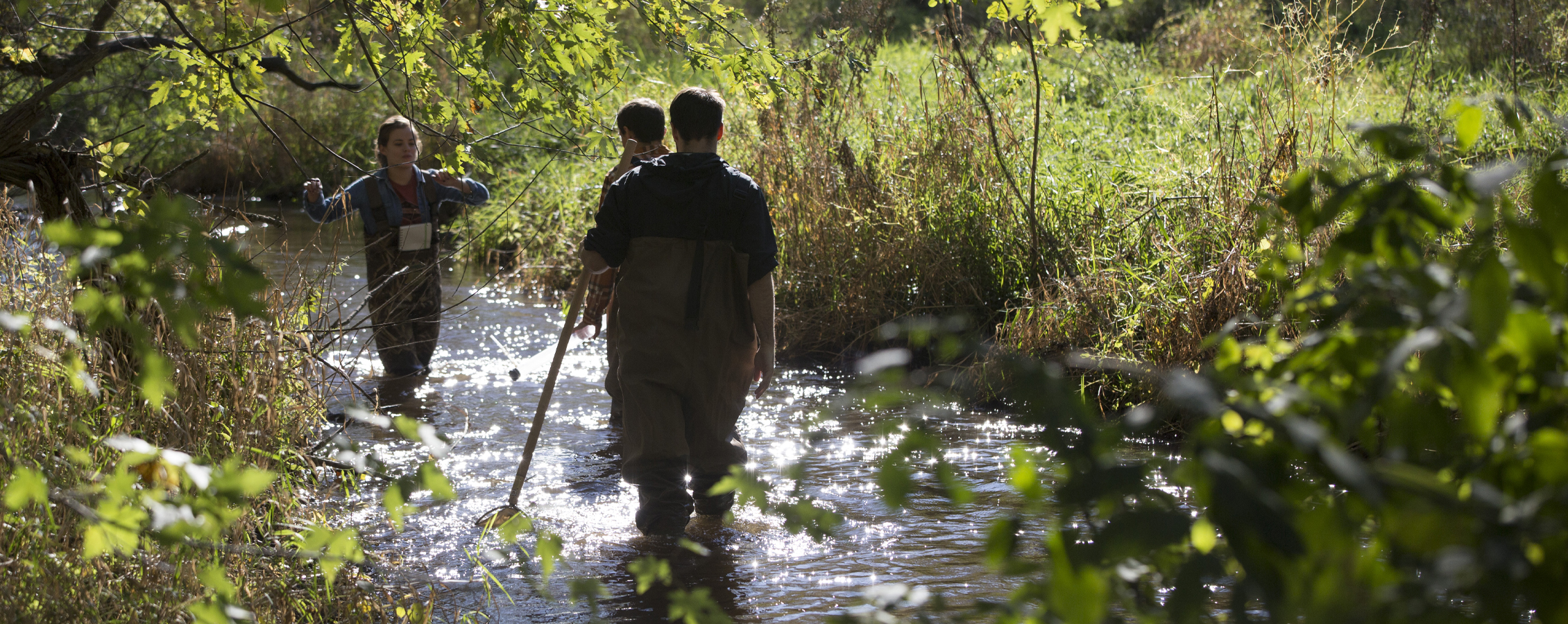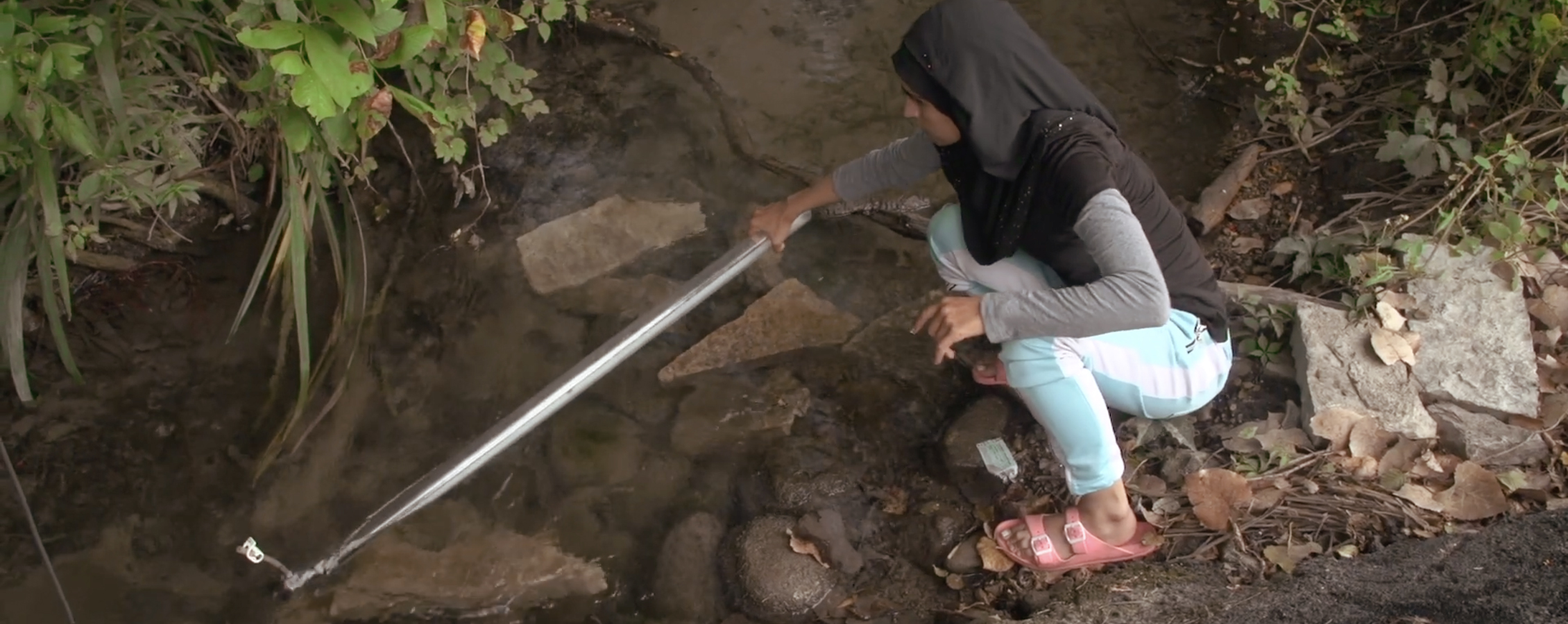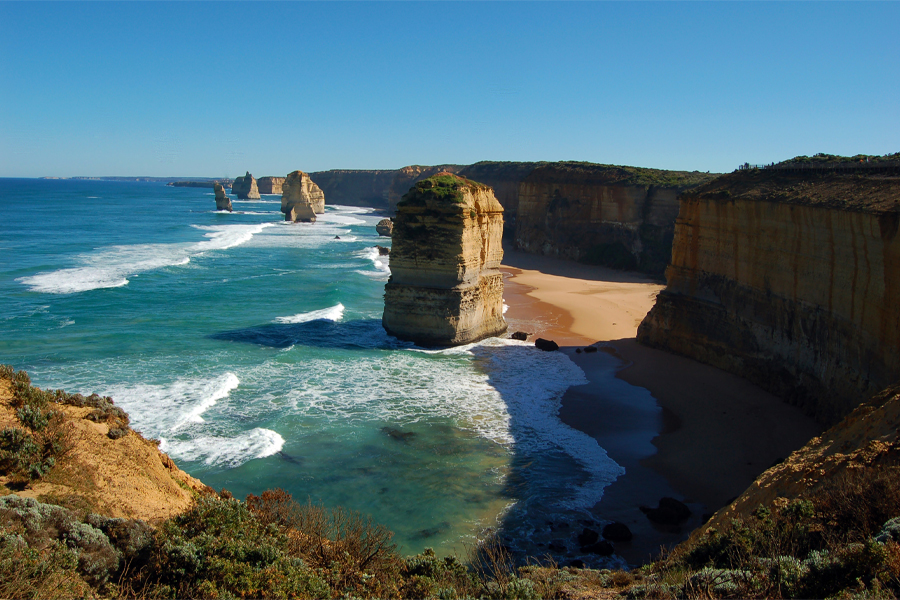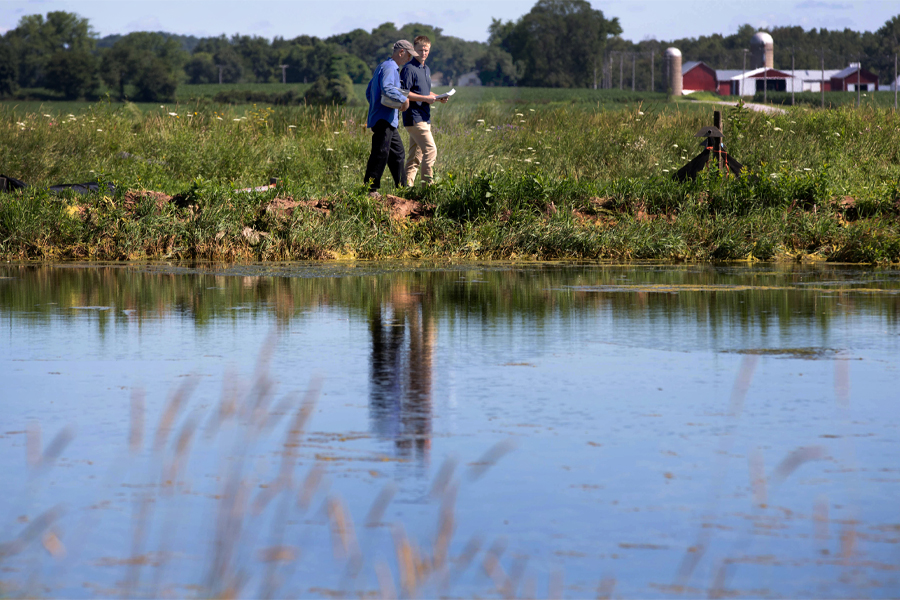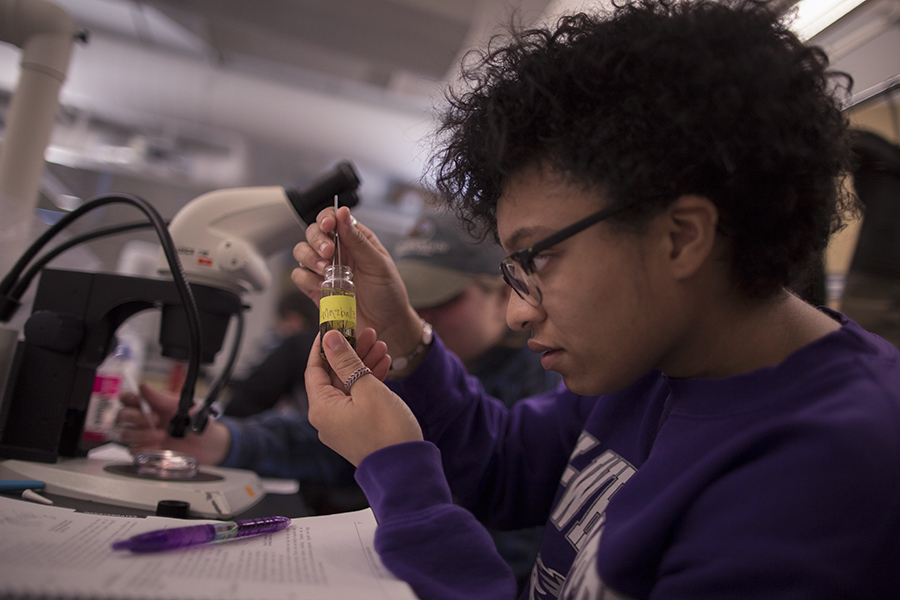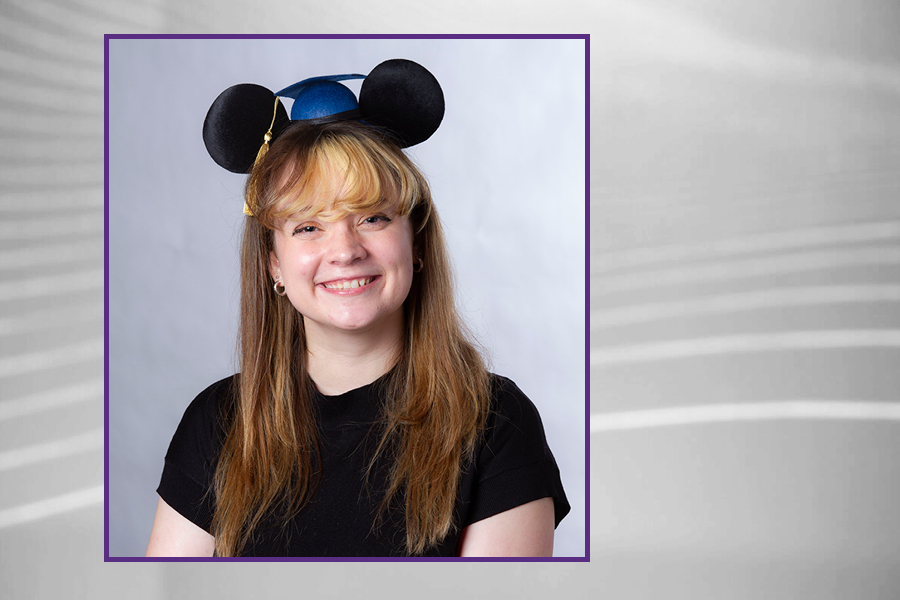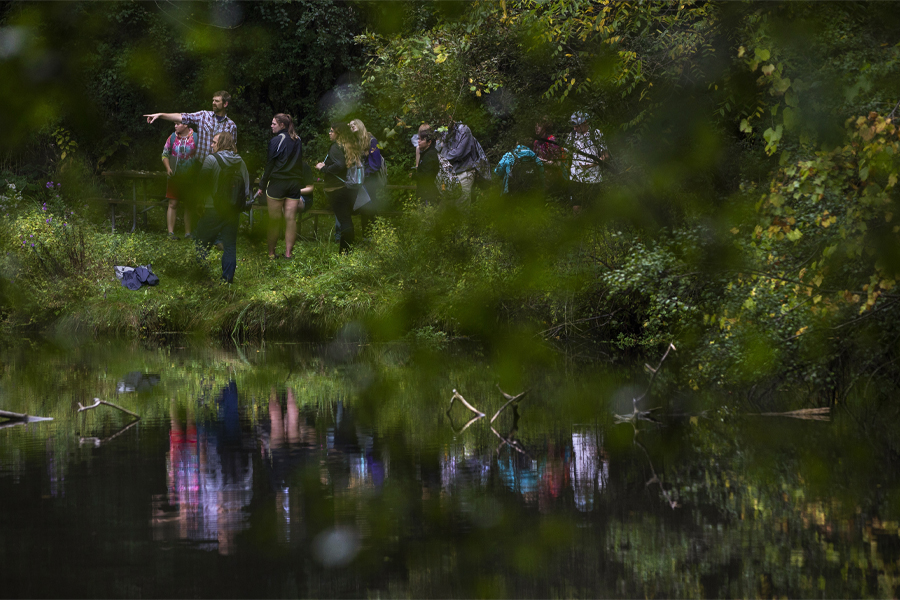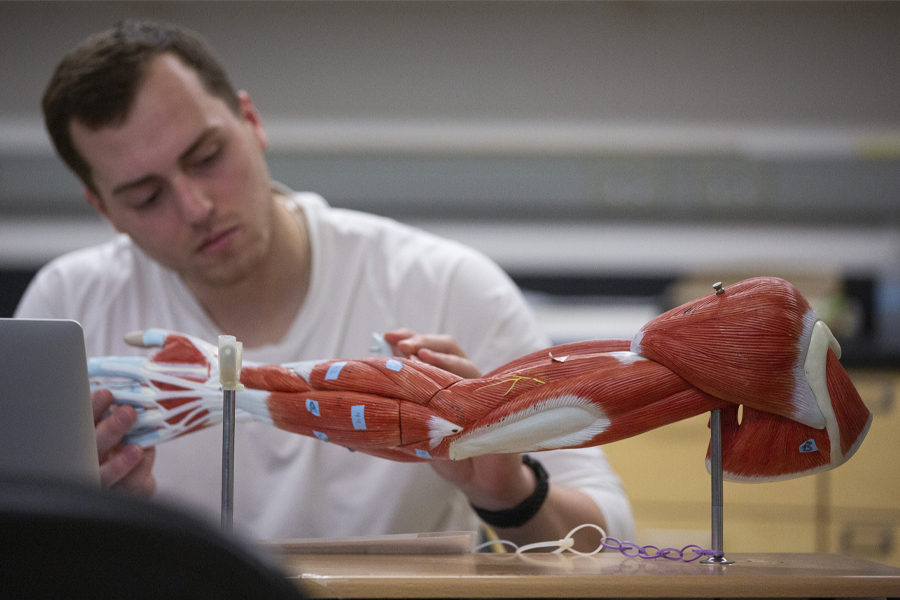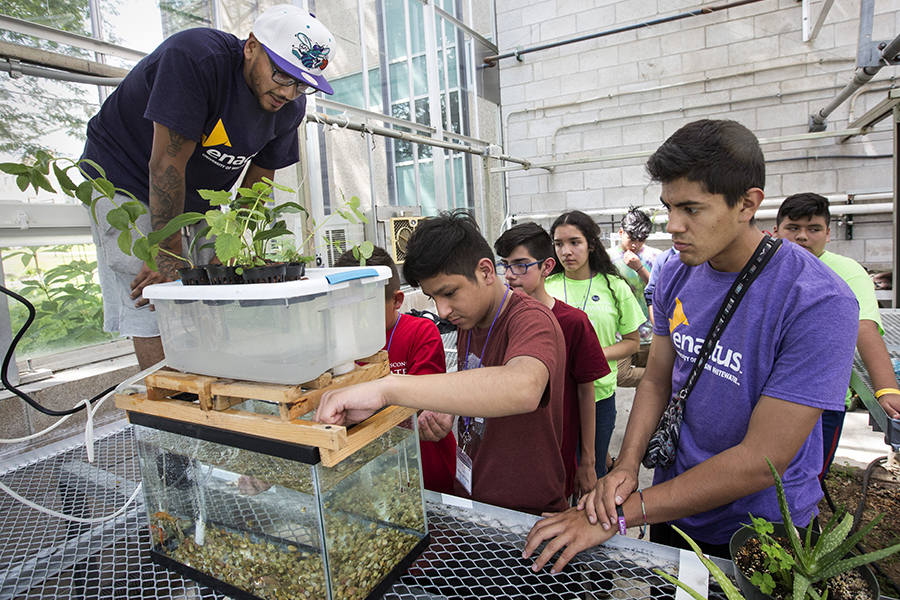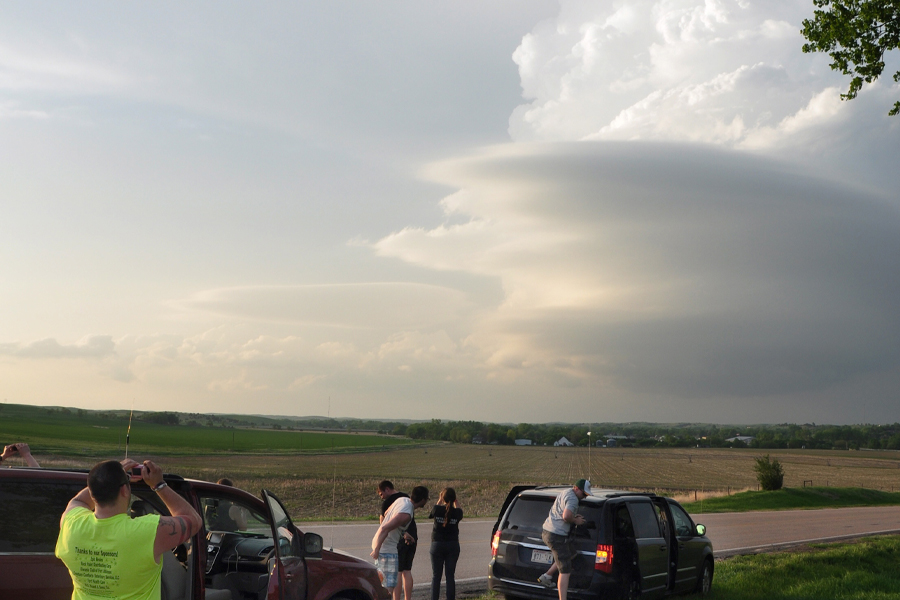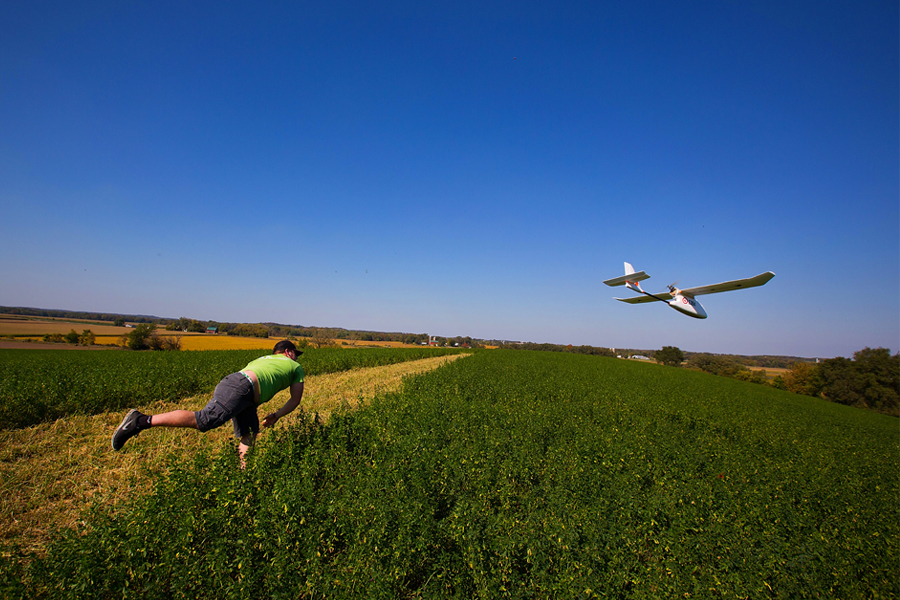BIOLOGY (Marine Biology and Freshwater Ecology)
Bachelor's Degree Programs
Our oceans and freshwater sources sustain life. As the world population grows and new environmental challenges arise, there’s perhaps never been a more important time to earn a degree in marine biology and freshwater ecology.
Over the next decade, the U.S. Bureau of Labor Statistics projects that employment opportunities will grow by 7% for environmental scientists and specialists, 7% for biological technicians, and 4% for zoologists and wildlife biologists.
CAN WE BRAG A LITTLE?
Why UW-Whitewater for your Marine Biology degree?
From the lakes and streams of Wisconsin to the deep waters of the South Pacific, you’ll have plenty of places and opportunities to get your feet wet when you study marine biology and freshwater ecology at UW-Whitewater.
Freshwater field experiences will take you to wetlands, ponds, streams, rivers and lakes on and near campus, as well as in the nearby Kettle Moraine state natural areas.
During your junior or senior year, you will also study abroad for two semesters at Deakin University in Australia. With coastal and inland campus centers, Deakin offers ready access to some of the richest biodiversity in Australia.
Between courses at UW-Whitewater and Deakin University, marine biology and freshwater ecology students will have access to a wide variety of elective classes.
What our Marine Biology students do
Research and hands-on learning experiences

A major in biology with a focus on marine biology and freshwater ecology at UW-Whitewater will provide you plenty of hands-on experience in and outside the classroom, including:
Undergraduate Research
Biology students are some of the most active researchers on the UW-Whitewater campus. Marine biology majors are encouraged to participate in the Undergraduate Research Program or the Research Apprentice Program. Explore research opportunities »
Travel Study and Study Abroad
As part of the marine biology portion of the degree, you'll have the opportunity to take a travel study course and you’ll spend two semesters abroad in Australia at our partner school Deakin University.
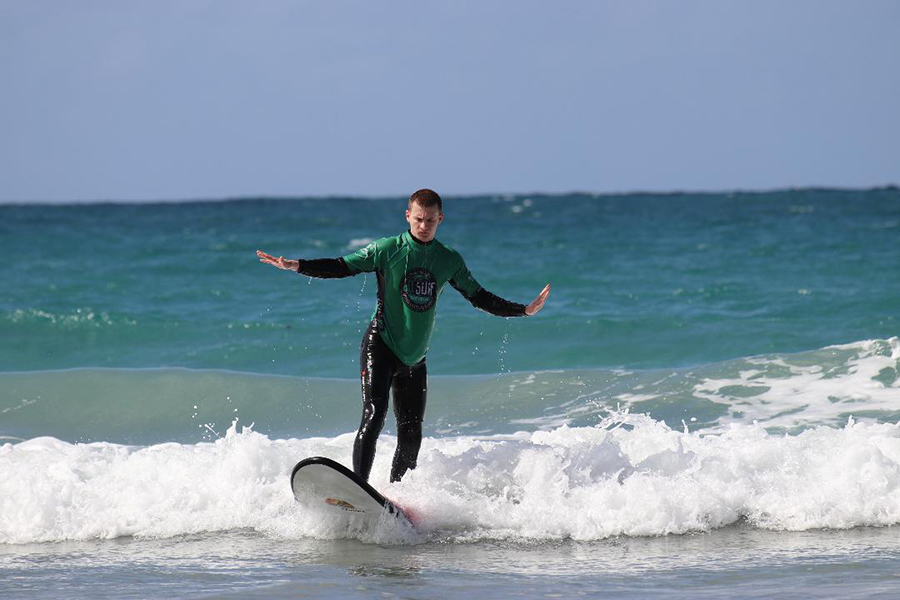
Warhawk treasures study abroad experience down under
Biology major Lance Freeman is studying abroad in Australia for a full calendar year. A recipient of the Burton Heldt Study Abroad Scholarship and the Student Opportunities Fund scholarship, Freeman has the opportunity to study marine biology near seawater — fieldwork that you can’t do in Wisconsin.
Campus and community involvement
As a freshwater ecology and marine biology major, you might be interested in participating in UW-Whitewater’s Science Outreach programming, or joining your classmates in the Terrestrial and Aquatic Ecology Club or Beta Beta Beta, the biology honors society.
First-year students interested in biology (as well as chemistry, physics, or engineering) have the option to live in the Double Helix Learning Community.
Space and places: Our facilities
The UW-Whitewater Department of Biology is home to modern classrooms and research and instrumental labs filled with state-of-the-art equipment. Our Natural History Specimen Collection in Upham Hall contains thousands of cataloged plant and animal specimens.
As a marine biology/freshwater ecology major, you will also enjoy our local landscapes; field work will take you into nearby wetlands, forests and other natural areas.
What our graduates do
Marine Biology careers: What can you do with a Biology degree?
Students interested in marine biology and freshwater ecology often seek careers in conservation, public policy, research, education and other related fields. A sampling of positions and organizations include:
- Land program manager, Marine Science Institute
- President/CEO, Water Council
- Program analyst, Great Lakes Coastal
- Editor, Oceanic Preservation Society
- Soil conservationist, Glacierland Research and Development
- Program manager, Alliance for Water Stewardship North America
- Animal trainer, National Marine Mammal Foundation
- Bear management, Grand Teton National Park
- Water resource management Specialist, DNR
- Lake management specialist, McCloud Aquatics
- Environmental specialist, U.S. Department of Defense - Pearl Harbor
- Science technician (adult salmon), Washington State Department of Fish and Wildlife
Graduate schools
After earning their Bachelor of Science in biology, many of our students pursue master's degrees in fields such as ecology, environmental science and marine biology. A sample of graduate schools and programs include:
- University of Wisconsin-Madison, environmental conservation
- University of Wisconsin-Milwaukee, freshwater science and technology
- James Cook University, marine biology and ecology
- Oregon State University, marine resource management
- The Evergreen State College, environmental stewardship
- Stephen F. Austin State University, forestry and wildlife management
- University of Miami, marine mammal science
Our faculty
Biology faculty members are dedicated to student success, and many are leading researchers in their field of study. Expertise in our department includes areas such as:
- Biodiversity
- Environmental toxicology
- Aquatic ecology
- Habitat selection
- Conservation and restoration
- Behavioral ecology
- Population biology
And our faculty members also research fish, reptiles, amphibians, mammals and various aquatic invertebrates. Stephen Levas, an associate professor of biology and geography, geology, and environmental science, is a 2025-26 Fulbright Scholar, a recognition of his great teaching and research capabilities. Levas will work with students at the University of Belize to analyze research on coral reefs.
Want to learn more about earning a Marine Biology and Freshwater Ecology degree?
262-472-1092 | biology@uww.edu
UW-Whitewater offers the following Marine Biology and Freshwater Ecology undergraduate options:
- Bachelor of Science — Marine Biology and Freshwater Ecology emphasis | 4-year-plan [PDF]*
- Honors Biology Bachelor’s Degree emphasis | 4-year-plan [PDF]
*This program may also be completed as a Bachelor of Arts (BA) degree in the College of Letters and Sciences, and will require additional coursework.
Teaching Licensure:
Minors:
In addition to UW-Whitewater’s general education requirements, the marine biology and freshwater ecology emphasis requires a range of required core and elective classes.
The marine biology degree also requires a two-semester study abroad experience at Deakin University in Australia; students must have a 2.75 GPA to travel abroad.
This selective program is limited to 10-15 students per year.
To apply, you’ll complete the UW-Whitewater standard application for admission and indicate your interest in earning a degree in biology.

